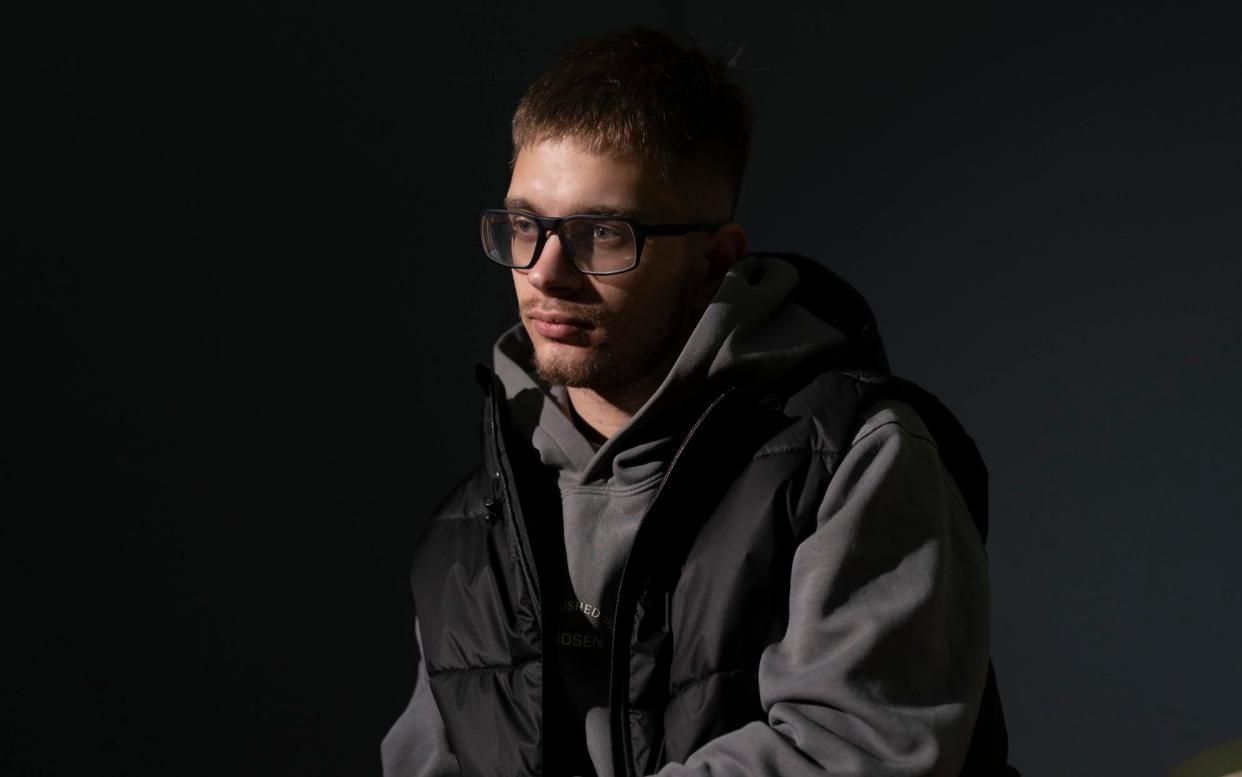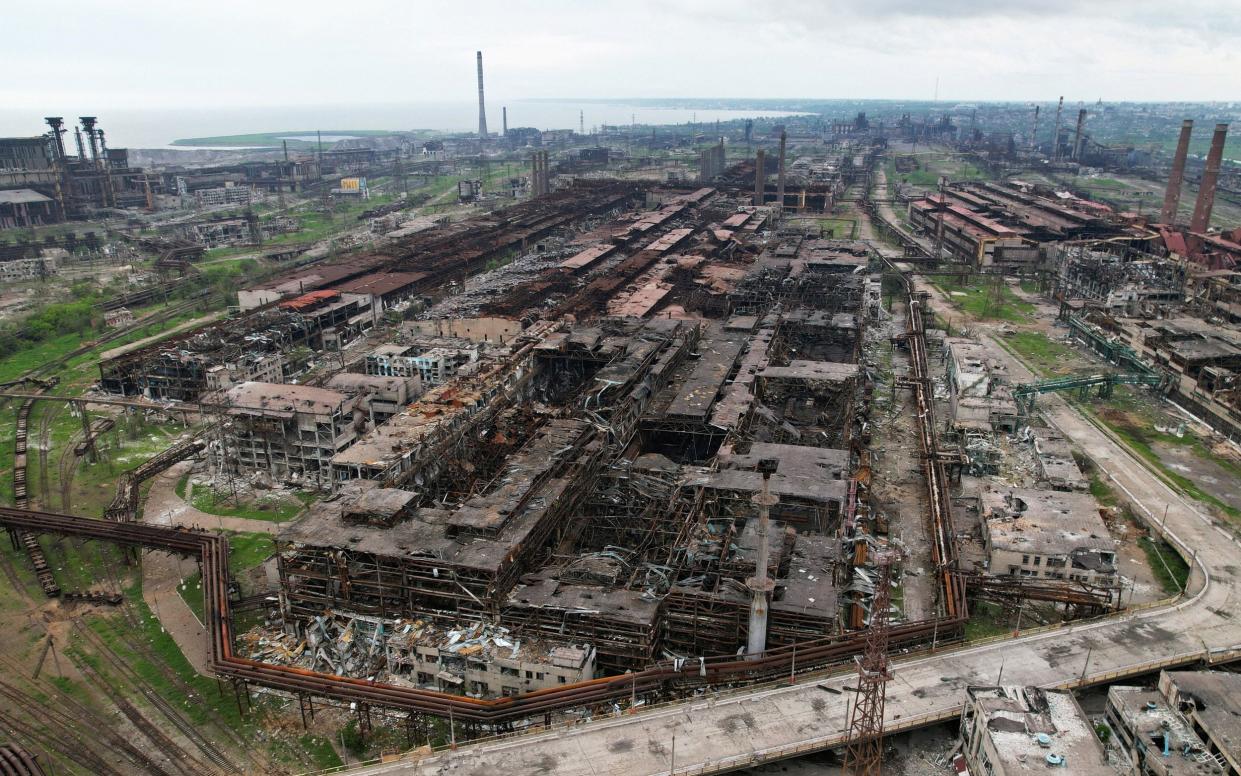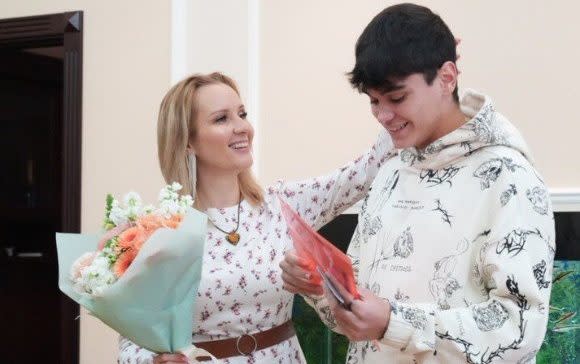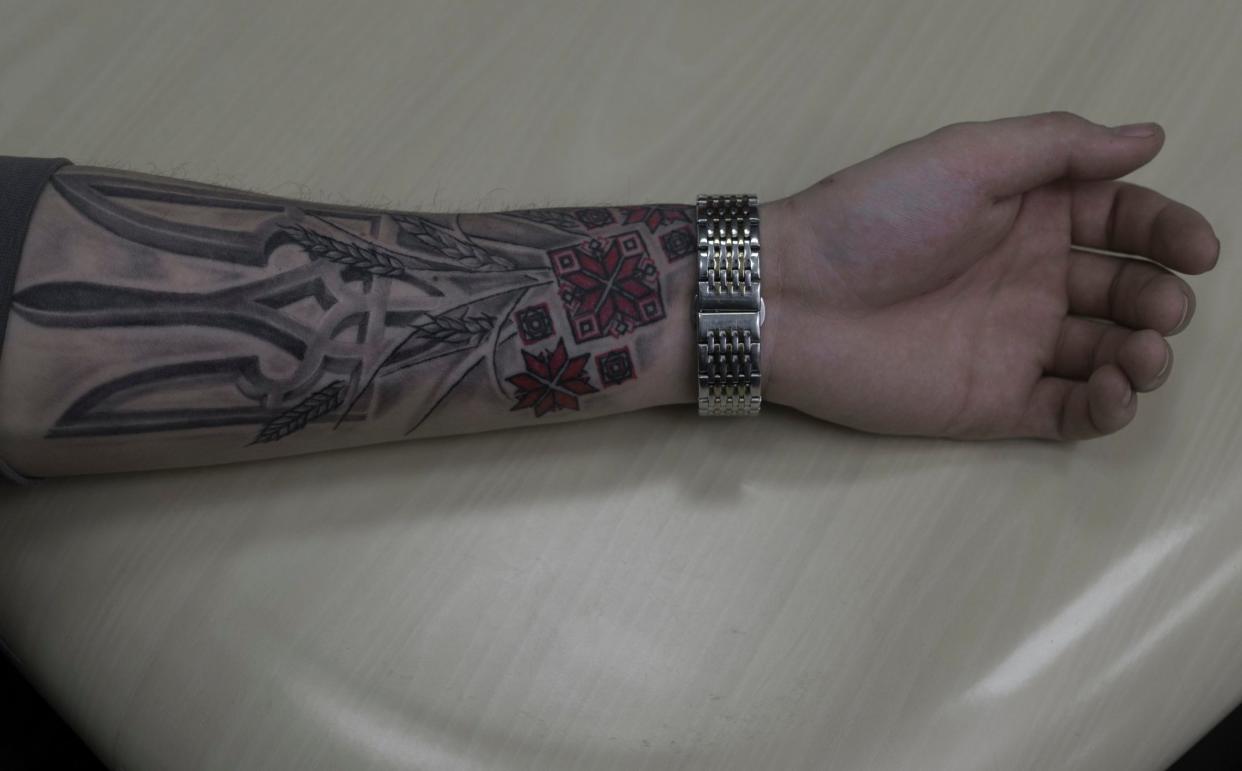Ukrainian orphan abducted by Russia tells of how he escaped Putin’s grasp

Had he been older or less vulnerable, says Ukrainian teenager Bohdan Yermokhin, he “would have set the Kremlin on fire”.
Originally from the coastal city of Mariupol, he was forced to live in Moscow for almost one and a half years after he and 30 other Ukrainian orphans were rounded up by Russian forces and deported against their will.
Nicknamed the Mariupol 31, he and his friends had already lived through months of brutal siege, witnessing widespread death and destruction as Vladimir Putin’s forces turned their home city to rubble.
When the last pocket of the city’s resistance fell in May 2022, the traumatised orphans were sent first to Donetsk and then on to Moscow.
There, they were adopted or fostered by government workers, forced to become Russian citizens and threatened with conscription – potentially to be sent to fight their own countrymen.
Mr Yermokhin was just 16. He had lost both his parents just before the outbreak of war.
“They treated us like sacks of potatoes, moving us around without asking for our consent or showing any care,” Mr Yermokhin, now 18, told the Telegraph. “The first months were a blur. I understood only that I would need to get out.”
‘There was so much death and lots of dead bodies’
Currently back in Ukraine after escaping Russia late last year, Mr Yermokhin is recovering in Kyiv. The psychological toll of surviving deportation, an act described as a war crime by the UN, will stay with him forever.
From the moment Russia invaded in February 2022, Mariupol – a highly strategic port city on Ukraine’s southern coast – was a key target for Putin.
It would soon become the site of the war’s biggest battle to date, as Russia executed a brutal siege and months of heavy fighting and aerial bombardment.
At least 8,000 people were killed, according to a Human Rights Watch report last month – some estimates put the figure as high as 100,000.
Mr Yermokhin spent most of the siege in the basement of a school dormitory close to the city’s Azovstal steelworks – the site of a siege-within-a-siege and Ukraine’s last stand in Mariupol. He would hear from others about big attacks, such as the one on the drama theatre, while out searching for food or water.
“There was so much death and lots of dead bodies,” he said.

Tragedy was everywhere, both in the abstract and the personal – a close friend, who had looked out for Mr Yermokhin after his parents died, was killed by shrapnel after covering him from an explosion. The teen still has a long, thin scar just above his left knuckles from the incident.
In another painful episode that Mr Yermokhin finds difficult to speak about, he cradled a 10-year-old girl in his arms as she died from a chest wound. The girl had just lost her mother to shelling.
He claims that a woman who while pregnant appeared in widely-shared images of the aftermath of a deadly attack on the city’s maternity hospital – and the Oscar-winning documentary 20 Days in Mariupol – is a distant cousin.
“By the time Russian forces took over, I had the feeling that I was already dead,” he said. “I have learned that you have to cherish the moments and people you have because they won’t be there forever.”
Almost all of Mariupol’s buildings were damaged or destroyed during Russia’s three-month siege, and the city remains under occupation.
After Russian forces gained full control of the city they swept through to “clear the land”, as Mr Yermokhin put it, checking for remaining Ukrainian fighters. They made a list of the orphans who had been left behind, before later taking them from their shelters and sending them to Donetsk, one of two self-proclaimed Russia-aligned republics.
There, they stayed in a local hospital for a month. Mr Yermokhin believes it was to add an air of legitimacy to the transfer, so that Russia could claim it was administering medical care to the children. However, he was neither sick nor hurt and received no treatment, he said.
He did not want to comment on the details of his journeys into Donetsk or Russia due to an ongoing investigation. However, he did say the children were not told why they were being moved or what would happen next.
Local media previously reported that he was transferred to Russia via bus and plane.
Put up first in a summer camp, most of the children were then adopted or fostered by state workers – Mr Yermokhin was taken in by Irina Rudnitska, an assistant to the country’s former human rights ombudsman, Tatyana Moskalkova.
While an investigation is ongoing, he is limited in what he can say about his stay in Russia. His foster family treated him well, although they were heavily influenced by the Russian narrative, and the children were put into the local education system and issued citizenship – they were not asked for their permission.
‘The moment I saw him I realised he’s mine’
Mr Yermokhin said the Russians tried to gain his trust, treating him nicely at first, but things deteriorated over time when he retained his positivity towards Ukraine – he would regularly argue with those around him, it was a constant psychological strain.
The Mariupol 31 were quickly turned into a propaganda tool for Moscow to “prove” they had saved the city.
Mr Yermokhin’s best friend, Pylyp Holovnya, became a poster boy for Russia’s so-called rescue missions when he was adopted by Maria Lvova-Belova, ombudswoman for children’s rights.
A half-hour documentary called This Is My Child broadcast on a nationalist TV channel last year told the story of Mr Holovnya’s removal from Mariupol, with Mrs Lvova-Belova declaring: “The moment I spoke to him I realised he’s mine: this is my child.”
A few months before, the International Criminal Court issued an arrest warrant for Mrs Lvova-Belova, as well as Putin, over the unlawful removal of Ukraine’s children.
Mr Holovnya’s friends and relatives have said they believe he was taken to Russia against his will. Mr Yermokhin described Lvova-Belova as a “two-faced person” who plays up to Russian TV cameras but is not so nice when they leave.
“She is a terrorist and a liar like Putin,” said Mr Yermokhin. “When asked one time why civilians had to die in Ukraine, she answered ‘it’s God’s will’.”

Others in the Mariupol 31 were wheeled out at a pro-war rally to mark the first anniversary of the war in Moscow, thanking their invaders publically in scenes that made headlines around the world.
The star of the show was Anna Naumenko, a 15-year-old with black hair whose mother is believed to have been killed in Mariupol. Addressing a soldier nicknamed “Yuri Gagarin”, she said: “Thank you Uncle Yura for saving me, my sister and hundreds of thousands of children in Mariupol.”
Mr Yermokhin says the children are either often too scared to rebel, or coerced into complying with propaganda and bribes. Ms Naumenko, for example, was given a new iPad in exchange for the speech, he claimed.
Mr Yermokhin was offered a Moscow apartment in exchange for his cooperation. He, however, wasn’t swayed: “I prefer to live in a free democratic country than live as a slave”.
Child deportations number almost 20,000
Towards the end of last year, fears began to grow for Mr Yermokhin’s safety as he approached adulthood – set to turn 18 in November, he received a letter, seen by the Telegraph, ordering him to attend an enlistment office within one month. Russian officials have claimed the summons was for record-keeping purposes.
His plight became public knowledge when lawyer Kateryna Bobrovskaya appealed to President Volodymyr Zelensky to help. Just over a week later he returned to Ukraine, arriving on his 18th birthday, due to an agreement that was reportedly mediated by Qatar and Unicef.
“I wrapped myself in a Ukrainian flag and jumped for joy for 10 minutes,” Mr Yermokhin said.
He had tried to return home on his own earlier in the year, according to both Ukrainian and Russian media, with Mrs Lvova-Belova saying in April that Mr Yermokhin had been stopped near the border with Belarus on his way to Ukraine.
He and Ms Bobrovskaya did not want to discuss the precise details of his escape to protect continued efforts to rescue other children. In January, another child, a close friend of Mr Yermokhin’s referred to only as Oleksandr, was returned to Ukraine. Another close friend, Roman, was returned last year.
The Mariupol 31 are just a handful of the almost 20,000 cases of child deportations documented by Ukrainian authorities since Russia launched a full-scale war two years ago.
Authorities believe the real figure could be far higher and have called the practice and act of genocide.
Moscow claims it has “welcomed” 744,000 Ukrainian children, accompanied or unaccompanied, for their own safety.
Iryna Vereshchuk, deputy prime minister and minister for reintegration of the temporarily occupied territories of Ukraine, told the Telegraph last month that Russia is “changing the identity of these children and we have little power to stop them”.
“We don’t have the resources to return these children back to Ukraine … We don’t know what will happen to them,” she said.
In Kyiv, Mr Yermokhin is now focused on using his experience to help others. He was learning to be a welder before the war, but now wants to study international law.
He and Ms Bobrovskaya have also set up a foundation, Rescued Future of Ukraine, to help other children who were deported to Russia with housing, medical, financial, psychological and other support when they return home.
Music has been a sort of therapy for Mr Yermokhin, helping him cope with the darkest periods and the deep psychological scars. Later this year, he plans to release an album of his music, written in the Ukrainian language rather than Russian, which was widely spoken in Mariupol. The proceeds will go to the foundation.
He has already raised over 30,000 hryvnia (£6,000) through concerts, and now has a large Ukrainian coat of arms tattooed on his forearm.
“No one hates Russia more than the orphans,” he said. “I want to show those who are still there that we will find a way to bring them back.”



